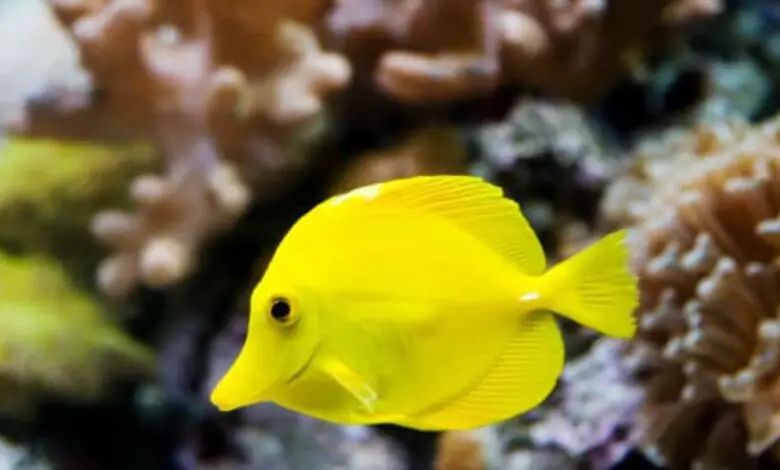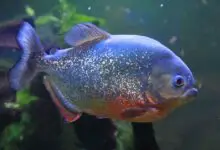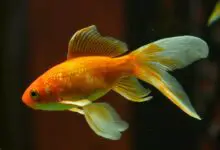8 Common Freshwater Fish Diseases: Symptoms and All-Natural Treatments

Having fish can be so fun! But sometimes, even when you try really hard, your fish can get sick. Knowing what to look for and how to help them feel better again is important for any fish owner.
In this post, we’ll talk about 8 common illnesses freshwater fish can get. We’ll go over their causes, signs, and gentle, natural ways to treat them at home. Things like timeout spaces, salt, warm water, herbs, and changes in food can help a lot! We’ll also chat about when it’s best to move a sick fish by itself to a special healing tank.
Let’s start by looking at how we can be proactive and prevent sickness in the first place. An ounce of prevention is worth a pound of cure, after all!
Keeping Fish Strong: Timeout Spaces and Calm Homes
Here are two excellent ways to avoid fish illnesses before they happen:
Give New Fish Timeout
Putting new fish in a solo space for a few weeks before adding them to your main tank is smart. This “timeout” lets you watch them closely for any signs of sickness. Use a basic 10-20 gallon tank with a filter and heater for timeout. Look for spots, rubbing, redness or shyness. Timeout stops illness from spreading.
Make Your Tank a Calm, Low-Stress Home
Stress makes it way harder for fish to stay healthy. Be sure your tank water is perfect. Don’t overcrowd the tank. Give fish cozy hiding spots and plants. Keep noises and knocks away from the tank. Having a calm, happy home means healthy fish!
If you give new fish a timeout and reduce stress, you can help avoid many illnesses. Now let’s learn how to spot signs of sickness early.
Spotting Sickness Early On
Catching diseases fast is really important so fish can heal quickly. Don’t ignore these subtle clues:
- Not eating
- Hiding a lot or moving little
- Clamped fins
- Fast breathing
- Red spots or swelling
- White fuzzy dots or patches
- Rubbing on things
- Weird behaviors
If a fish is gulping at the top or looks like it can’t breathe, it needs help right away!
Use a tank log to write down any small changes every day. Learn how each healthy fish looks and acts, so you spot when something is off.
Trust your gut. If a fish seems sick, it probably is. Let’s look at some common illnesses next.
Ich: White Spots and Natural Help
Ich (ICK) is a tiny parasite that shows up as small white dots on fish. The dots are cysts filled with the pests! Ich spreads fast and makes fish rub on stuff.
Helping Ich: Store medicines work, but many fish folks prefer gentle home treatments:
Salt Water – Plain aquarium salt in the tank makes fish mucus stronger, pushing the parasites off. Use for 10-14 days.
Warm Water – Ich doesn’t like hot temps! Slowly raise the tank temperature to 80-86°F. Keep it warm for 2 full weeks.
Tank Vacuuming – Thoroughly cleaning the gravel also removes some Ich before they spread. Do this 2-3 times while treating.
UV Light – A UV tank cleaner kills Ich using ultraviolet light. Size it right and shade the tank.
Catch Ich fast and use natural fixes, and it usually goes away in 2-4 weeks!
Fungus: Fluffy Patches and Help Without Antibiotics
Another common sickness is “fungus” or “cotton mouth.” Fungus is fluffy white patches on injured or stressed fish when water gets bad. It spreads rapidly, so quick treatment is vital!
While antibiotic meds can treat stubborn fungus, milder home options are:
Clean Water – Change water more to remove waste. Clean filters monthly. Don’t overfeed. Check for bugs in the water. Fungus hates clean tanks!
Aquarium Salt – Plain salt soothes fish and helps them heal. The salt makes it hard for fungus to grow on their skin. Use 1 teaspoon per 5 gallons for 1-2 weeks.
Natural Herbs – Indian almond leaves, oak leaves, and green tea fight fungus with natural chemicals. Steep 3 bags overnight, then pour the “tea” in the tank each day.
Potassium Permanganate – This chemical kills fungus at safe doses of 2-4 ppm. Use it carefully in a hospital tank, repeating every 4 days as needed.
With quick natural fixes and better tank habits, fungus can go away in 1-4 weeks!
Unwelcome Visitors: Salts, Heat, and Baths for Parasites
Tiny parasites like flukes, lice, and worms are frustrating! They latch onto fish and cause scratches, swelling, clamped fins and extra mucus.
Salt Treatment – Adding 0.5-1 teaspoon of aquarium salt per gallon safely kills external parasites and makes mucus stronger. Use for 10-14 days.
Heat Treatment – Cranking up the temperature to 82-86°F makes parasites die off faster. Keep the water warm for at least 2 weeks continuously.
Medicine Baths – Short 5-10 minute baths in a bucket with parasite medicines help. For individual fish only, not the main tank!
Remove the pests completely with thorough salt or heat in the main tank, or quick baths in a hospital tank. Parasites usually go away in 2-6 weeks.
Diet Improvements for Bacterial Problems
Bacteria like fin rot or dropsy arise from many issues like stress, injuries, and dirty water. While antibiotics treat stubborn bacteria, better food and homes help a lot!
Diverse Meals – Feed a variety of live, frozen or freeze-dried foods to boost immune systems. Soak dry food in vitamin water. Reduce feeding if water gets dirty fast.
Garlic Guard – Real garlic or garlic supplements fight bad bacteria in fish. Soak food in garlic juice or use garlic water additives.
Green Power – Greens like spirulina and chlorella provide vital nutrients and discourage bad gut bacteria.
Spotless Habitat – Don’t let ammonia or nitrites build up. Maintain warm, oxygen-rich water with great filters. Reduce stress and change water twice a month. A healthy home prevents many bacterial issues!
With a nourishing diet and pristine tank, bacterial problems often resolve gradually over 4-8 weeks.
Herbal Boosts for Fish Vitality
Natural plant remedies can strengthen fish against illness without harsh chemicals. Herbs also directly fight some germs.
Indian Almond Leaves – Release helpful tannins that ward off bacteria and fungus. Also boosts mucus. Use 1 leaf per 10 gallons.
Green Tea – Has antioxidant catechins that combat germs. Steep tea bags overnight, then add the tea to the tank daily.
Garlic – Deters parasites, bacteria, and fungi. Use fresh garlic or supplements.
Salt Baths – A saltwater bath draws out fluids and parasites. Dip treated fish for 5-10 minutes before returning to the main tank.
Store Remedies – Mild herbal extracts like Melafix fight bacteria and fungus. Use as labeled, in hospital tanks only.
Herbs are gentle yet powerful aids that rebalance fish and beat pathogens. Ask your local fish store for safe options.
When to Use Hospital Tanks for Extra Care
Even with your best efforts, sometimes illness spreads in the main tank, or many fish get sick at once. Then it’s time to use an emergency hospital tank for intensive care. These have a heater, filter, hideouts and salt. Here’s when to use one:
- New fish timeout
- Strong medicine dips or baths
- Fish bullying or fighting
- Weird “mystery” diseases
- Lots of fish sick at the same time
- A very ill fish that needs extra care
Hospital tanks let sick fish have a stable, quiet place to focus on healing. Once recovered, slowly re-introduce them to the main tank. Fix any tank problems to avoid repeats!
Proper hospital tank steps limit the spread of disease and allow customized treatment. Having one ready makes caring for sick fish much less stressful!
In Conclusion
Many common freshwater fish illnesses don’t have to become huge issues. By catching symptoms early, using timeout and low-stress homes, and trying gentle natural treatments, you can successfully manage a lot of fish diseases.
Focus on prevention through clean water and a consistent routine. React fast when you spot sickness. Use safer alternatives like salt, herbs, garlic and warm water instead of harsh meds if possible. Move very sick fish to hospital tanks for focused care.
With some basic disease knowledge and natural at-home treatments, you can keep your fish happy and healthy while avoiding risky chemicals. Don’t be afraid to ask your local fish experts for help identifying or treating illnesses. Stay alert, take action quickly, and know your care options. With good fishkeeping and disease prevention, your freshwater tank can thrive!







